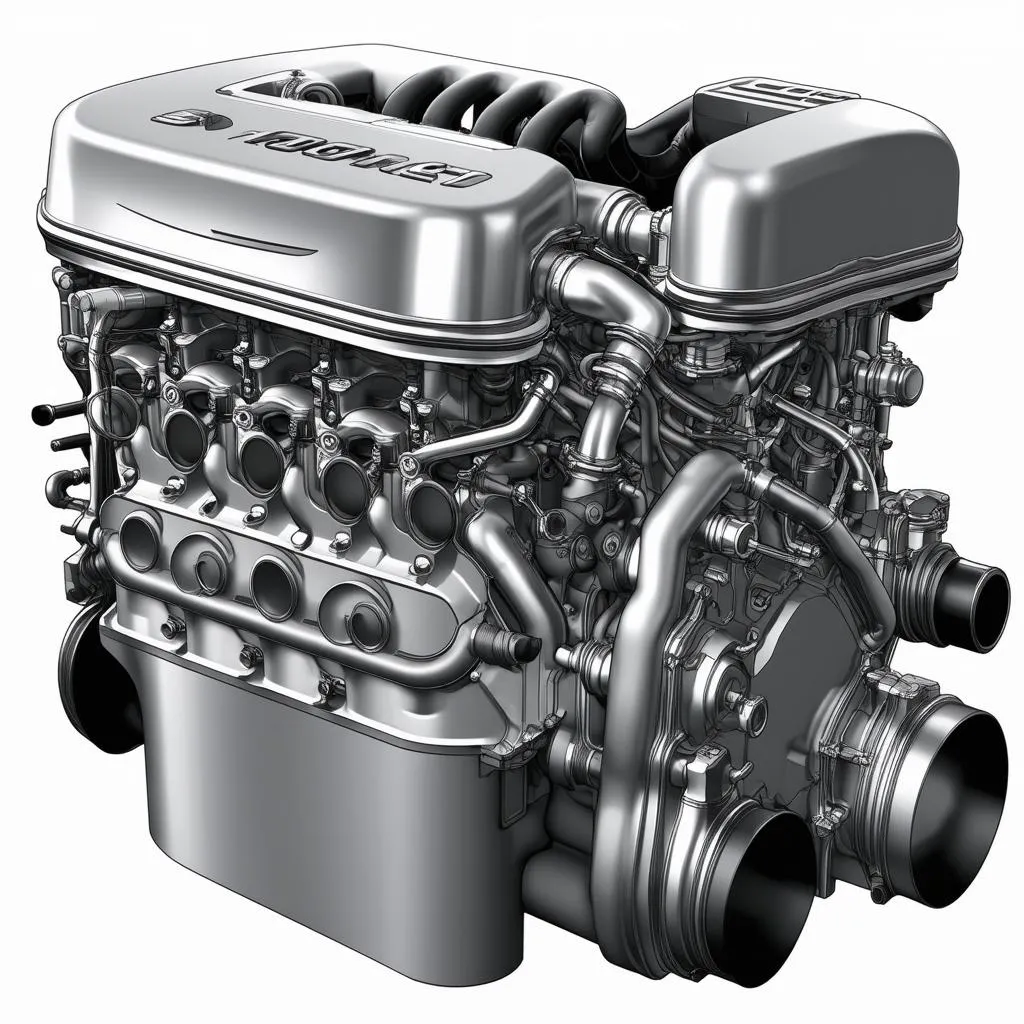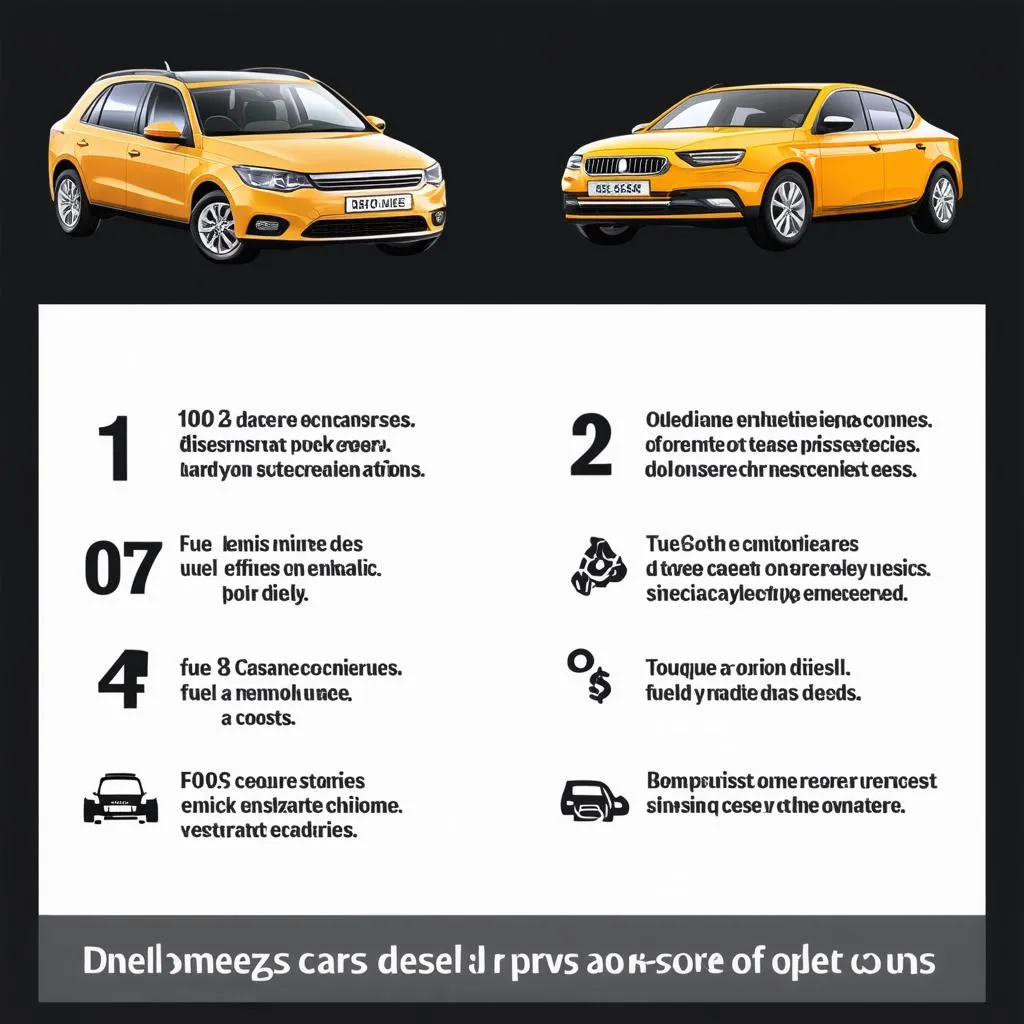“My trusty diesel truck just hit 200,000 miles! It’s been chugging along for years with minimal issues,” John proudly shared with his neighbor, Sarah, who was considering trading in her gasoline car. “Really?” Sarah responded, surprised. “I’ve heard diesels are expensive to maintain and bad for the environment. Is that true?”
This interaction highlights the mixed opinions surrounding diesel cars. Are they fuel-efficient workhorses or polluting relics of the past? Let’s dive into the world of diesel cars and find out.
Understanding Diesel Cars
Before we dissect the pros and cons, it’s essential to understand what sets diesel cars apart.
The Diesel Engine: Power and Efficiency
Unlike gasoline engines that use spark plugs to ignite fuel, diesel engines utilize compression ignition. Air is compressed at a high ratio, generating enough heat to ignite the diesel fuel injected into the cylinder. This difference results in:
- Higher Fuel Efficiency: Diesel engines are inherently more efficient than gasoline engines, often boasting 20-35% better fuel economy.
- Greater Torque: Diesel engines deliver more torque (rotational force) at lower RPMs, making them ideal for towing and hauling heavy loads. This is why you see many trucks and large SUVs powered by diesel engines.
Environmental Impact: A Contentious Issue
Diesel engines have faced scrutiny for their emissions, particularly particulate matter and nitrogen oxides (NOx), which contribute to air pollution and health problems.
However, modern diesel cars are equipped with advanced emission control systems like Diesel Particulate Filters (DPFs) and Selective Catalytic Reduction (SCR) systems that significantly reduce harmful emissions.
 Diesel Engine Cutaway
Diesel Engine Cutaway
Pros and Cons of Diesel Cars
Let’s weigh the advantages and disadvantages of owning a diesel car:
Advantages:
- Fuel Efficiency: This is the most significant advantage, especially for frequent drivers. A diesel car can save you substantial money on fuel in the long run.
- Torque and Towing: Diesel engines excel at pulling heavy loads, making them perfect for towing trailers, boats, or campers.
- Durability and Longevity: Diesel engines are built tough and known for their longevity. It’s not uncommon to see diesel vehicles with hundreds of thousands of miles on the odometer still running strong.
Disadvantages:
- Higher Upfront Cost: Diesel cars generally have a higher purchase price compared to their gasoline counterparts.
- Maintenance Costs: While modern diesel cars require less maintenance than older models, certain components like the DPF and SCR system can be expensive to repair or replace.
- Fuel Availability: Diesel fuel is not as widely available as gasoline in some areas.
Common Queries About Diesel Cars
Let’s address some frequently asked questions about diesel cars:
Are diesel cars more expensive to maintain?
Maintenance costs can vary depending on the make and model. While routine maintenance might be comparable to gasoline cars, certain diesel-specific components can be more expensive to repair.
Are diesel cars bad for the environment?
Modern diesel cars with advanced emission control systems are significantly cleaner than older models. However, they may still produce more NOx emissions compared to gasoline cars.
Are diesel cars suitable for city driving?
While diesel engines excel in highway driving, frequent city driving with short trips can lead to issues with the DPF system, which requires longer drives to regenerate properly.
Making an Informed Decision
Choosing between a diesel and gasoline car depends on your individual needs and driving habits. If you prioritize fuel efficiency, towing capacity, and longevity, a diesel car might be the right choice.
However, if you primarily drive in the city, are concerned about potential maintenance costs, or prioritize lower emissions, a gasoline, hybrid, or electric vehicle might be a better fit.
 Diesel vs. Gasoline Car Comparison
Diesel vs. Gasoline Car Comparison
Explore More About Automotive Technology
Want to delve deeper into the world of car diagnostics and repairs? Check out these articles:
Need help with your diagnostic tool setup or car repairs? Contact us on WhatsApp at +84767531508. Our team of automotive experts is available 24/7 to assist you.
Whether you’re a seasoned mechanic or a curious car owner, understanding the intricacies of diesel cars empowers you to make informed decisions about your vehicle. We encourage you to leave your questions and comments below and share this article with fellow car enthusiasts!


